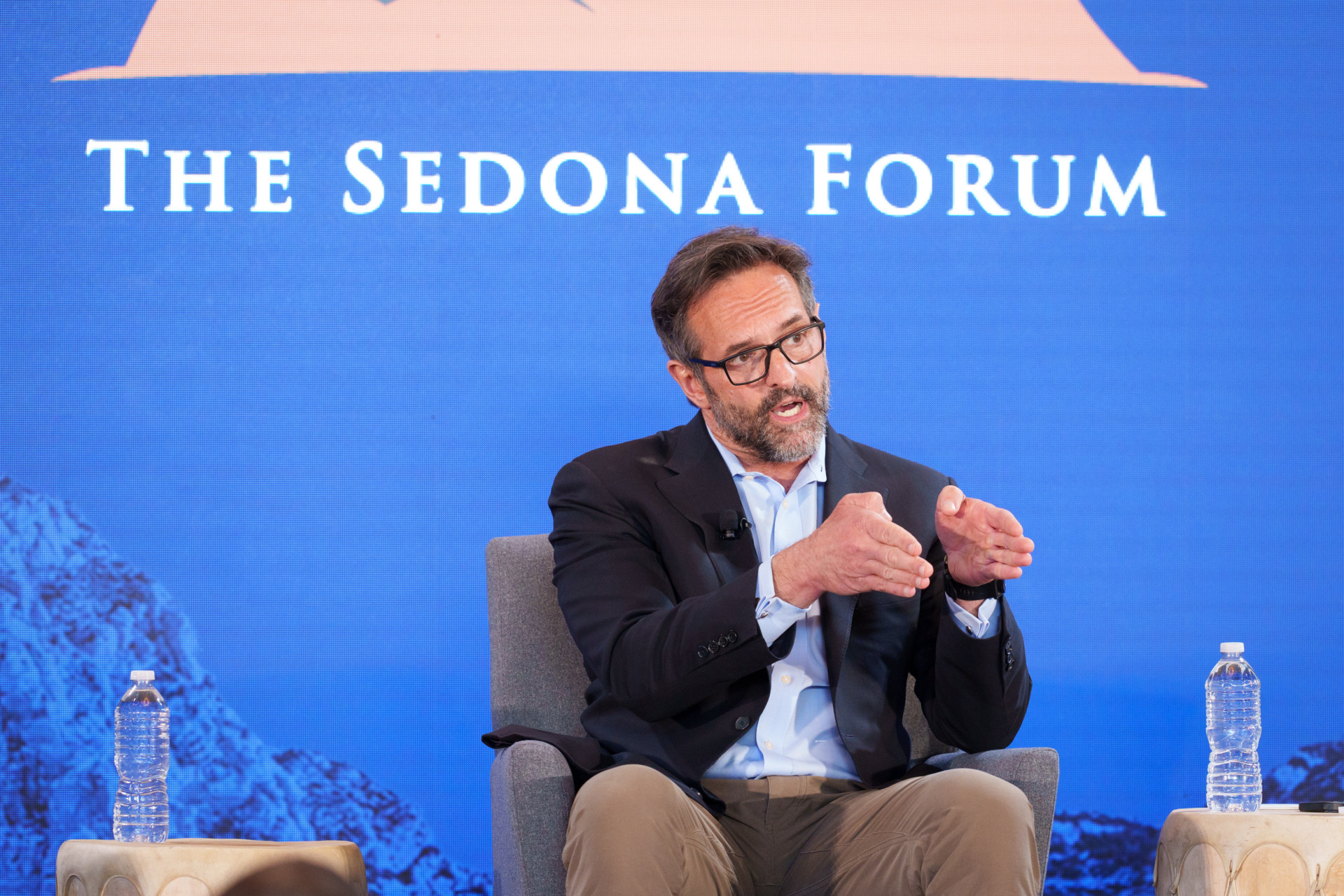Building from the example of John McCain’s lifelong dedication to principle and “service above self,” the mission of the McCain Institute for International Leadership at Arizona State University is to advance character-driven leadership both in the US and around the world. As part of its strategy to build a strong network of leaders who share that purpose, the McCain Institute has launched its annual fellowship programs. Since an important element in Senator McCain’s approach to public leadership was to foster constructive public discourse on today’s important policy challenges, these fellowship programs aims to provide a home and affiliation to a select number of public servants and policy experts from a variety of administrations, federal departments and professions.
John S. McCain Democracy Fellow
The John S. McCain Democracy Fellowship is part of the McCain Institute’s larger effort, the American Democracy Project, to focus on the United States.

Sofia Gross
Sofia Gross was the inaugural John S. McCain Democracy Fellow. As the 2022-2023 John S. McCain Democracy Fellow, Gross planed to implement the Arizona Democracy Project in an effort to build tools for the next generation of Arizonans facing democracy issues and in turn, solve issues facing democracy across the country. With the goal of building a better future for Arizona as a model for civics across the country, the project included three primary tactics: the McCain Institute x ASU Poll, Arizona Town Halls and Young Leader Convenings.
- The McCain Institute x ASU Poll: Every year, Gross launched a poll in Arizona to help Americans understand the issues facing Arizonans that reflect broader issues impacting our democracy across the country through a poll commissioned by the McCain Institute in partnership with Arizona State University. This also helped with brand awareness for the McCain Institute with key stakeholder groups.
- Arizona Town Halls: Building off Senator John McCain’s legacy of Town Halls, Gross aimed to help create a healthier ecosystem for news consumption and discourse in Arizona by partnering with local news networks and elected officials from across Arizona to convene for moderated discussions at ASU. She explored digital media partnerships for broadcast and ensured student voices are championed throughout the discussions.
- Young Leader Convenings: To help shape the next generation of political leaders in Arizona, Gross hosted workshops, panels and forums to help expand the conversation around leadership for young people across the state to help increase the number of people who consider and eventually run for local public office.
“I am so honored to serve as the inaugural John S. McCain Democracy Fellow, said Sofia Gross. “In this critical time, our country needs more courageous leaders and I’m thrilled to help build programming that inspires the next generation of American Mavericks to continue honoring and shaping the legacy of John S. McCain.”
John S. McCain Distinguished Fellowship
The John S. McCain Distinguished Fellowship is designed to support a senior leader in international relations or security issues, enabling that individual to bring about real-world change on an issue of national or international significance.
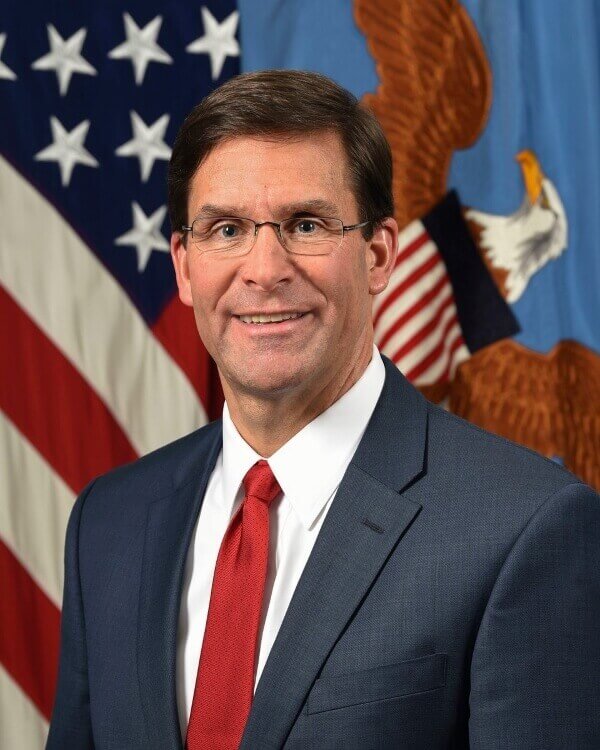
Dr. Mark T. Esper
2022 Recipient
The McCain Institute at Arizona State University was proud to welcome former U.S. Secretary of Defense Mark T. Esper as its first John S. McCain Distinguished Fellow.
As Secretary of Defense and Secretary of the Army, Dr. Esper dealt with the unique challenges posed by the rising economic, military and technological capabilities of the People’s Republic of China and the People’s Liberation Army.
In his new role as the McCain Institute’s John S. McCain Distinguished Fellow, Secretary Esper will led a bipartisan team to assess, discuss and promote policy solutions to the challenges facing U.S. national security decision-makers in the Executive Branch and Congress.
The discussions centered around four key principles: modernizing our armed forces, strengthening and expanding our alliances and regional relationships, reinvigorating America’s soft power globally by supporting our diplomatic and development assistance initiatives, and utilizing a whole-of-government approach alongside our allies to counter China.
Kissinger Fellowship
The Kissinger Fellowship supports a senior leader in foreign policy and national security, enabling real-world change and honoring Dr. Henry Kissinger’s lifetime of service.
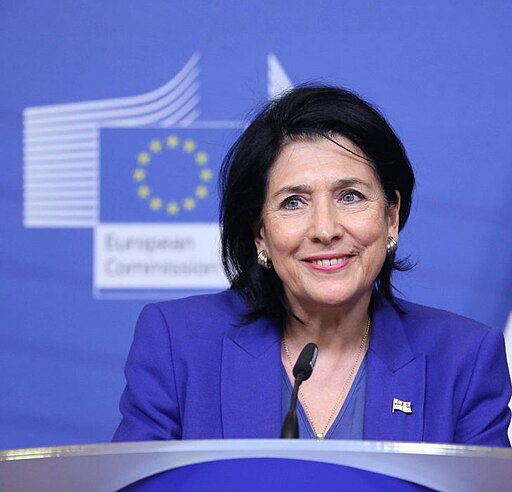
Georgian President Salome Zourabichvili
2025 Recipient
Salome Zourabichvili was inaugurated as the first female President of Georgia on December 16, 2018.
Zourabichvili was born in 1952 and went to the Institute of Political Studies (1969-1972 – Paris, France) and went onto a master’s program at Columbia University, School of International and Public Affairs (1972-1973 – New York, U.S.A.).
From 1974 to 2004, she worked in the diplomatic service for the Ministry of Foreign Affairs of France in several embassies (Italy, United States, and Chad) and with French representations to international organizations (UN, NATO, Western European Union, OSCE). In 2003, she was appointed as Extraordinary and Plenipotentiary Ambassador of France to Georgia. From 2004 to 2005, she served as Minister of Foreign Affairs of Georgia. After leaving the post, she founded the political party “The Way of Georgia” on March 11, 2006.
Zourabichvili was an Associate Professor of International Relations at the Institute of Political Studies in Paris, France (2006-2015). At the same time, she led the United Nations Security Council monitoring group on sanctions against Iran (2010-2015). Then in 2016, she won her election as an Independent Deputy in the Parliament of Georgia.
She is fluent in Georgian, French, and English and converses in basic Italian.
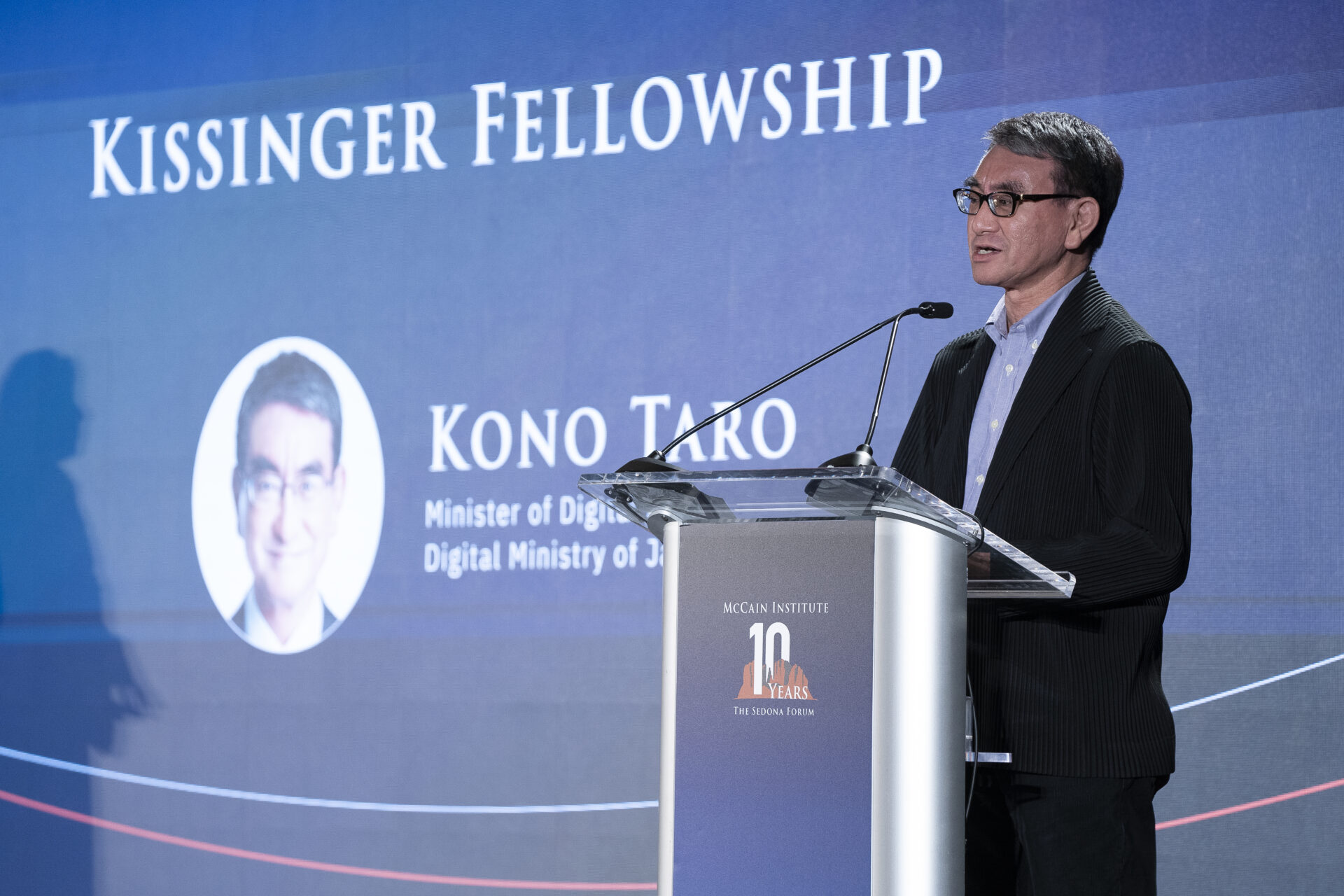
The Honorable Kono Taro
2023 Honorary Recipient
The McCain Institute at Arizona State University (ASU) announced the Honorable Kono Taro as its honorary Kissinger Fellow on May 18, 2023. Currently serving as Japan’s minister of digital transformation, Minister Kono will hold the Kissinger Fellowship in an honorary status for one year.
First elected to the Japanese Diet in 1996, Minister Kono has held several high-level cabinet positions in the Japanese government, including foreign minister from 2017-2019 and defense minister from 2019-2020. While minister for administrative reform and regulatory reform in 2020-2021, he led Japan’s COVID-19 vaccination drive. Most recently, Minister Kono stood as a candidate for prime minister before taking his post as minister of digital transformation at the Digital Agency of Japan.
As the McCain Institute’s honorary Kissinger Fellow, Minister Kono will use his vast diplomatic and policymaking experience to address the issue of data flow across borders by advancing an international framework that would include the United States, our G7 partners, and other like-minded countries. Minister Kono’s expertise regarding the technical aspects of creating and implementing such a project makes him uniquely qualified for such an important task.
“Minister Kono is a political maverick who embodies the Kissinger Fellowship’s ideals of statesmanship,” said McCain Institute Executive Director Dr. Evelyn Farkas. “An international framework for data sharing that bolsters privacy and security regulations is necessary to counter the autocrats’ approach to global data governance. We are honored and excited for Minister Kono to begin his work on this important issue as the McCain Institute’s honorary Kissinger Fellow.”
“It is a distinction to be offered the honorary Kissinger Fellowship,” said Minister Kono Taro. “Modern times call for modern regulations and a need for a regulated data exchange regime, complete with privacy and security standards, is what today’s economy calls for. Moreover, a framework that strengthens these shared standards is essential to build global trust among like-minded countries.”
“Minister Kono Taro has been an exemplary leader in Japan for over two decades,” said Dr. Henry Kissinger. “His expertise has positively impacted Japan’s economy, healthcare system, armed forces, and foreign policy. I am confident in the work that he will do to advance cooperation on international data flow.”
View Minister Kono’s full bio here.
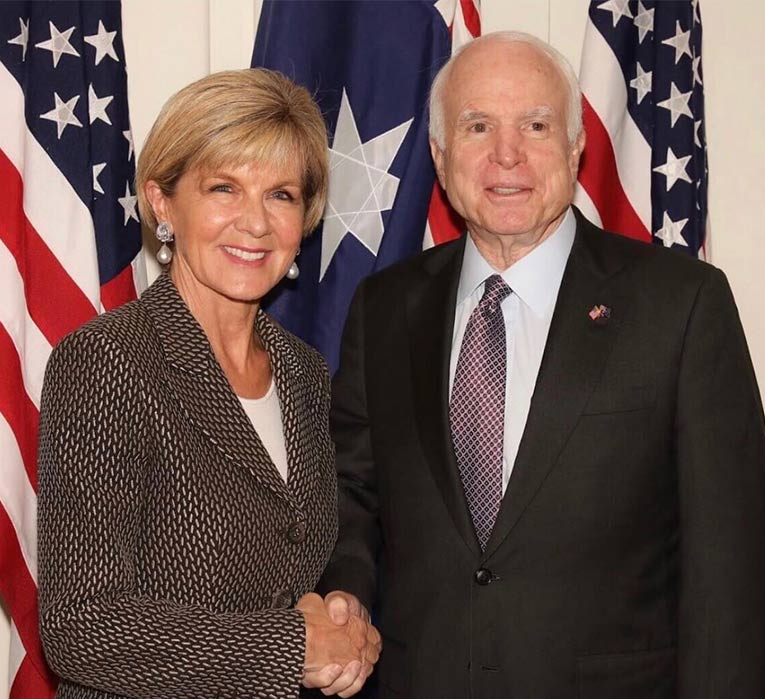
The Honorable Julie Bishop
2021 Recipient
On February 4, 2021, the McCain Institute announced Julie Bishop as the next Kissinger Fellow.
Elected to parliament in 1998, Bishop has held a number of cabinet level positions in the Australian government, including her service as minister for foreign affairs, serving as the first woman to hold the post. Now more than ever, Bishop’s distinguished foreign policy track record is needed as Australia and the United States deal with the rise of China’s closed authoritarian system.
“I am honoured to be offered the Kissinger Fellowship at the McCain Institute, because I had great respect for the late Senator McCain and met him on many occasions,” said Hon. Julie Bishop. “Whenever I visited Washington, he was always available for a meeting and discussion on world affairs. He was a man of honour and integrity. I have long admired Dr. Kissinger who has been a source of advice and wisdom over the years, and I am delighted to have this opportunity to continue to work with him on our research projects.”
“As chair of the McCain Institute, I am thrilled to have Julie Bishop with her wealth of expertise and talent join forces with us for the coming year,” said McCain Institute Board of Trustees Chair Cindy McCain.
“The Kissinger Fellowship at the McCain Institute is a very moving symbol for me because Senator McCain stood for the strength of America and for the role of America, especially in the Pacific,” said Dr. Henry Kissinger. “I am delighted that Julie Bishop is the Kissinger Fellow for this year and maybe for longer. I have known her since she was foreign minister of Australia, and Australia is an absolutely key factor in the security and possible progress of the Indo-Pacific region.”
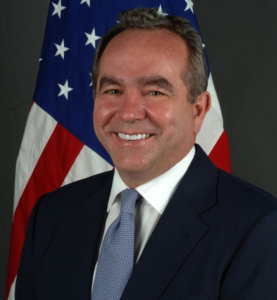
The Honorable Kurt Campbell
2018 Recipient
On January 29, 2018, the McCain Institute announced Kurt Campbell as the next Kissinger Fellow.
Kurt M. Campbell, the U.S. Assistant Secretary of State for East Asian and Pacific Affairs from 2009 to 2013, is chairman and chief executive officer of The Asia Group, a strategic advisory and capital management group. He also is chairman of the DC-based think tank, Center for a New American Security.
Singularly focused on China in this fellowship, Campbell plans to lead a bi-partisan project aimed at establishing a new, comprehensive framework to strike the best balance of competition and cooperation.
“The U.S.-China relationship is perhaps the most critical relationship for the world as we look to the future. Kurt Campbell has the knowledge and experience to lead a serious strategic review and I look forward to the results,” said Ambassador Kurt Volker, executive director of the McCain Institute.
“I salute the Institute for picking Kurt Campbell, a leader of character and impact clearly cut from the Kissinger mold,” said Senator John McCain.
The Kissinger Fellowship provides a unique opportunity for senior leaders to hone their skills, in taking on a challenge of international significance, and taking advantage of the conferred convening authority, according to Sir Evelyn de Rothschild, the McCain Institute’s chairman of this fellowship program.
A Unique Friendship
Dr. Henry Kissinger and Senator John McCain met for the first time on May 24, 1973, at the homecoming dinner President Richard Nixon hosted at the White House for the prisoners-of-war just returned from Vietnam. They had almost met three months earlier.
The Paris Peace Accords ending the war in Vietnam were signed in January 1973. The following month, President Nixon sent his National Security Advisor, Dr. Kissinger, to Hanoi to negotiate the treaty’s implementation with the North Vietnamese government. Vietnamese Prime Minister Pham Van Dong hosted a dinner for him on February 12.
At the time, Navy Lieutenant Commander John McCain III was in his sixth year of captivity, and was being held in Ho Lao prison, nicknamed the Hanoi Hilton by the American POWs, which was located only a few blocks from where Pham and Kissinger were having dinner.
The North Vietnamese had agreed to the repatriation of all American POWs as a condition for the withdrawal of U.S. forces in Vietnam. They were scheduled to be released in three groups according to the dates of their capture, with the longest held POWs released first. The order of returns was a matter of pride and honor to the POWs.
In the summer of 1968, after his father, Admiral John S. McCain Jr., had been appointed Commander in Chief of U.S. forces in the Pacific, Senator McCain’s captors offered to release him. Although he was in poor physical condition at the time and held in solitary confinement, he refused to go home ahead of men who had been captured before him. The Vietnamese insisted he do so on repeated occasions, but he continued to refuse. In August, he was subjected to severe and prolonged torture, and forced to sign a “confession.”
The treatment of the POWs had improved somewhat since then, and their morale was good. Since the Christmas bombing two months earlier, they had been convinced they would soon be going home. Senator McCain recalled his state of mind in the last month of his captivity.
“For several years, I had struggled to preserve my honor in a situation where it was severely tested. The longer you struggle to hold on to something the more you come to cherish it. And after a while, my honor, which in that situation was entirely invested in my relations and the reputation I had with my fellow POWs, became not just my cherished possession. It was my only possession. I had nothing else left.” Near the end of their dinner, Pham told Dr. Kissinger he could take LCDR McCain home with him the next day. “Commander McCain will return in the same order as the others,” he told Pham. He knew McCain’s early release would be seen as favoritism to his father and a violation of the POW’s code of conduct.
Senator McCain was released in order with the second group of POWs on March 14, 1973. When he met Dr. Kissinger at the White House dinner, he thanked him “for saving my honor.” The two men remained friends, and throughout his life, Senator McCain long relied on Dr. Kissinger’s brilliant strategic mind and wise counsel.
In a toast to Dr. Kissinger on the occasion of his 90th birthday, Senator McCain had this to say about his friend:
“So, here’s to my friend and benefactor, Henry Kissinger, the classical realist who did so much to make the world safer for his country’s interests, and by so doing safer for the ideals that are its pride and purpose. And who, out of his sense of duty and honor, once saved a man he had never met.”
McCain Institute Media Fellowship
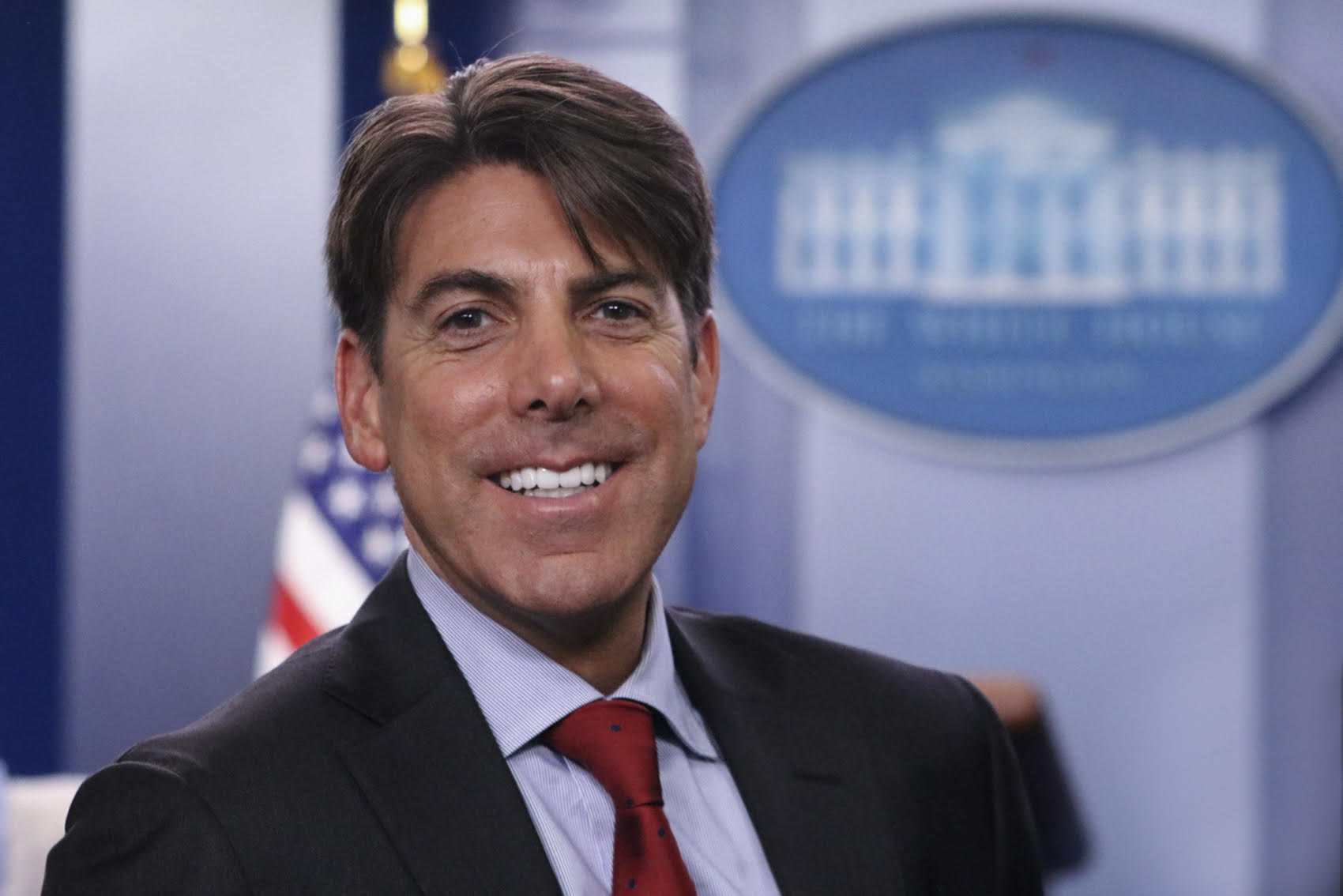
Jon Decker
Jon Decker is the White House Correspondent and Senior National Editor for Gray Television and has been a member of the White House Press Corps since 1995. In 2015, he was elected by his colleagues to the Board of the White House Correspondents’ Association. Jon serves on the faculty of Georgetown University and the UCLA School of Law where he is an Adjunct Professor. He also serves as a Media Fellow at the McCain Institute. Jon, a member of the Washington, DC Bar, is the only lawyer in the White House Press Corps.
American Democracy & Technology Translation Policy Fellowship
The American Democracy & Technology Policy Translation Fellowship, created in partnership with the Knight Foundation, supports fellows who apply emerging research and technological innovations to promote democracy and protect rights in the face of technological challenges, mis- and disinformation, and efforts to undermine American democratic norms and institutions.
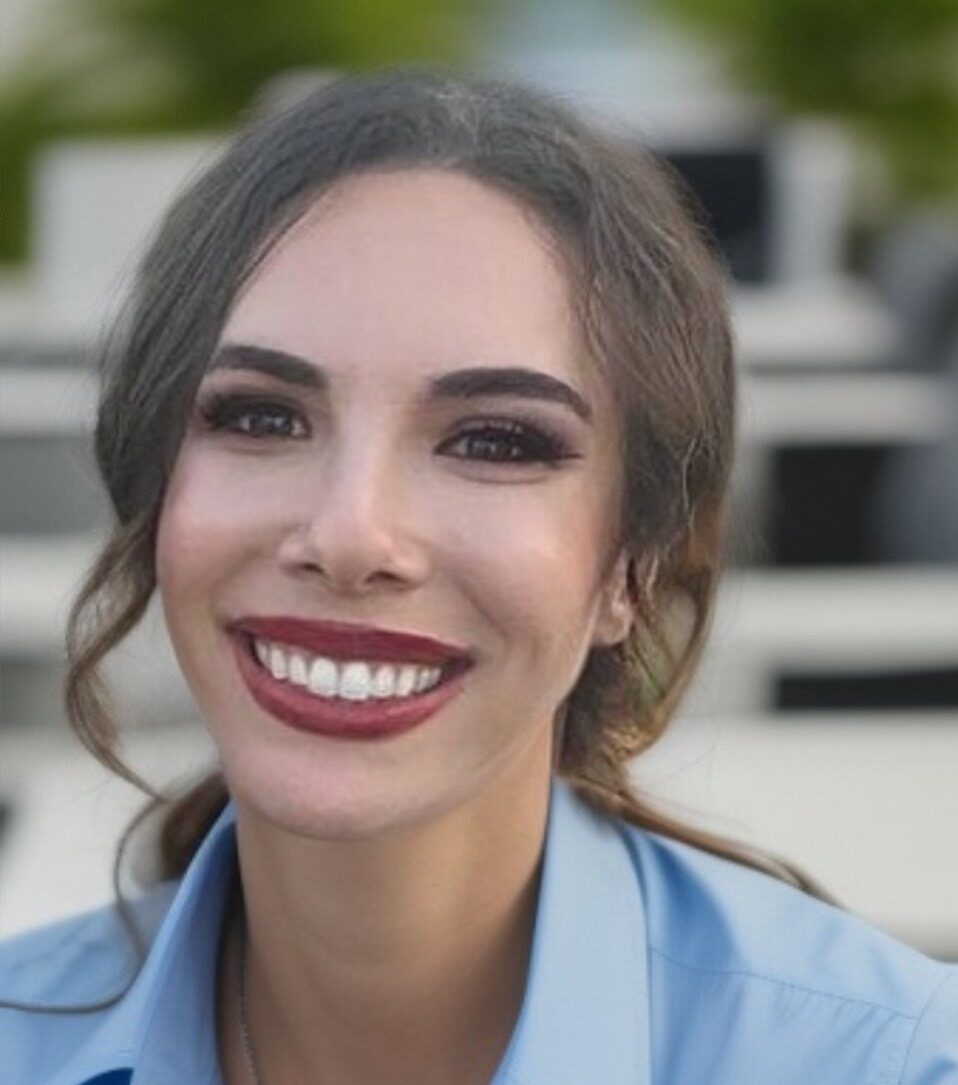
Hallie Stern
Hallie Stern specializes in information and computational social science, focusing on how human interactions with emerging technologies shape and influence global societal dynamics. Her work aims to address challenges to democratic stability while advancing effective technological solutions that enhance economic well-being. Currently serving as the AI and technology policy translation fellow at the McCain Institute, she holds a B.A. in integrative media and ontological studies from the University of Redlands and an M.S. in global security, conflict, and cybercrime from NYU, where she studied “The Human Side of Cyber Conflict.” Hallie has presented her research at venues such as the Nobel Prize Summit, UNGA, Harvard University, and DefCon, covering topics related to AI and geoeconomics, election integrity, algorithmic bias, information threats, and data security.
John S. McCain Freedom for Political Prisoners Fellow
In this role, fellows will provide strategic leadership for the FPPI and serve as a McCain Institute spokesperson on major hostage, wrongful detainee, and political prisoner recovery efforts. They will also liaise with lawmakers, NGO partners, and other stakeholders to stop state and non-state actors from taking hostages, contribute case-specific policy recommendations to aid in recovery efforts, and more.
Amb. Roger D. Carstens
Roger D. Carstens is the inaugural John McCain Freedom for Political Prisoners distinguished senior fellow. Prior to assuming this role, Mr. Carstens was the Special Presidential Envoy for Hostage Affairs (SPEHA) at the U.S. Department of State. He previously served in Amman, Jordan, as the Country Director for a U.S.-based international nongovernmental organization (INGO) that provided humanitarian assistance to Syrian refugees and internally displaced persons. Prior positions include Senior Civilian Advisor on the Commander’s Advisory and Assistance Team (CAAT) in Afghanistan; Project Director for an INGO based in Somalia; Senior Fellow at the Center for a New American Security; and Special Assistant for Legislative Affairs in the Office of the Secretary of Defense. Mr. Carstens is a retired Army Lieutenant Colonel who served in Special Forces and the 1st Ranger Battalion. He is a graduate of the U.S. Military Academy and holds master’s degrees from the U.S. Naval War College and St. John’s College. Mr. Carstens is the recipient of the 2023 Robert A. Levinson Excellence in Government Service Award, the St. John’s College Alumni Association’s Award of Merit, and was selected as a Distinguished Member of the Special Forces Regiment.
